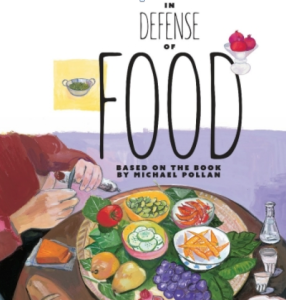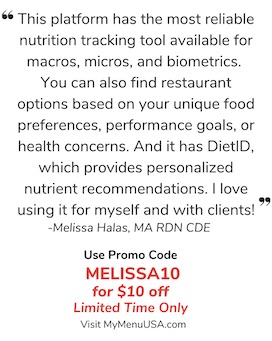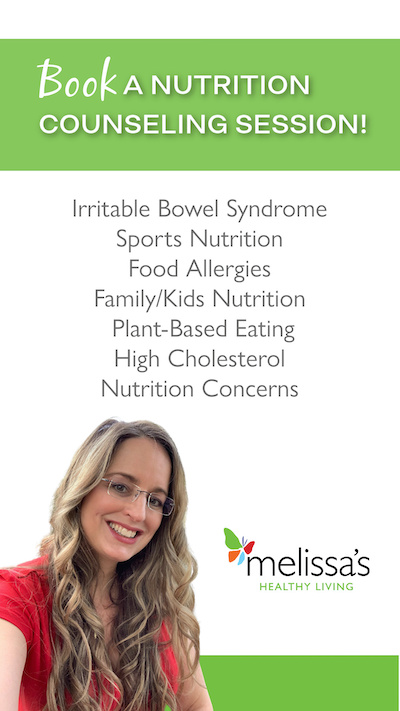
On November 30th, I attended the premiere of In Defense of Food, a documentary based on author Michael Pollan’s bestselling book of the same name, at the NYU Skirball Center for the Performing Arts. In Defense of Food aired on PBS on December 30, 2015. As a big fan of Pollan’s books, I had already been aware of much of the content discussed in the film, but I was pleased with the clear, easy-to-follow manner in which it was delivered. During the film, I could not help but think of family and friends who could really benefit by viewing it, as well as the general public. What a difference it would make if everyone watched this film!
Much like the book, the film discusses the connection between chronic disease and the modern diet. Statistically, with each additional serving of fruits or vegetables, we decrease our risk of chronic disease. Reverting back to the way things used to be – by eating whole, unprocessed foods – is actually beneficial for our health. Pollan uses an example of an African tribe, which still hunts and gathers the way our ancestors did, and notes their low rates of disease, despite their lack of access to modern medicine. The documentary shows us how the French, known for eating rich, high-fat foods, fare better than Americans do because they value the tradition of the meal, eat slowly and savor food. The film also notes the long lifespan of Seventh Day Adventists, who follow a strictly vegetarian diet, high in fruits and vegetables.
The film continuously reverts back to Pollan’s message, “Eat food. Not too much. Mostly plants.”, which have become a mantra to some, like myself. This simple message echoes the simple nature of a healthy diet, which we, as a nation, have strayed from and complicated in the name of progress. Pollan urges us to ignore marketing, and use our common sense. Here is his message broken down into its three parts:
- “Eat food.” Eat real food – food with a short list of ingredients you recognize and understand, that your grandmother would recognize as food. Avoid things which are processed and stripped of nutrients, then fortified with specific nutrients from a lab to make them marketable as “healthy”. Some of the healthiest foods you can eat are those that do not have claims or packaging for that matter – in the produce section. Cooking is an important part of living a healthy lifestyle.
- “Not too much.” Accessibility and placement of food can determine what and how much you eat. Eat what nourishes you. Stop eating before you are full.
- “Mostly plants.” Choose organic, if you can, but it is better to eat a conventional fruit or vegetable than none at all. If you eat more plants, you will eat less meat. If you eat meat, use it as a flavoring or supplement to the meal, not as the center of it. If you choose meat that is not treated with hormones and antibiotics, you will get a better, more nutritious product, which also moderates your intake, as it is expensive and difficult to find when dining out.
Following the film, there was a panel discussion with Michael Pollan, the film director, Michael Schwarz, film writer Ed Gray, and esteemed NYU professor, Marion Nestle. The discussion was moderated by Krishnendu Ray, chair of the Department of Nutrition, Food Studies, and Public Health at NYU. Most of the questions were geared to Pollan and Nestle, who echoed the message of the film. Pollan expressed that he hopes the message reaches those most in need, and also noted that he is optimistic about the rise of an alternative food movement, with the increasing popularity of farmers markets, organic foods, and farm-to-table restaurants. He noted that change is driven by consumers, and we need to make our voices heard by “voting with our forks, and voting with our votes.”
In Defense of Food will air on PBS on December 30, 2015 at 9:00 pm.



